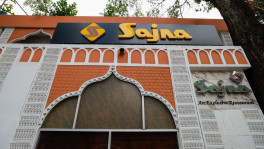A primary struggle
Primary teachers have been staging movement for long demanding upgradation of their pay scale

Md Rezwan's dream in life was of becoming a teacher. He passed all his examinations --from SSC to Master's -- with very good grades.
After completing his education, he took part in the recruitment examinations for primary schools' assistant teachers and qualified for the position.
Rezwan joined a school at Charfashion upazila in Bhola in 2016. He got Tk14,975 as per the 15th grade of the national pay scale 2015.
The salary of course did not much matter to Rezwan. What was important for him was that he was imparting knowledge to his students with much enthusiasm.
However, when he later learnt that a class-three government employee was entitled to the same salary and status as he was, it was a shock for him.
Rezwan said, "The salary and social status of a primary school teacher are very low. People treat us as lower class masters as they are aware of our status and salary structure."
"As the government treats us as class-three employees, we have no social dignity. Moreover, we have to lead our lives with a very limited income," Md Kamrul, an assistant teacher at a primary school in Manikganj, said.
It is a predicament, indeed an agony, primary school teachers of the country have been going through for a long time.
As a result, meritorious students are reluctant to go for teaching in primary schools.
Helal Uddin, another assistant teacher, who completed his honours and master's from Dhaka University, told The Business Standard, "The government must upgrade the position of primary teachers if we mean to have quality education at the primary level."
At present, trained and untrained assistant teachers get salaries as per the 14th and 15th grades of the national pay scale 2015 respectively.
On the other hand, trained and untrained head teachers of primary schools are paid salaries under the 11th and 12th grades of the pay scale respectively.
The salary of a head teacher under the 12th grade is Tk18,039.
Sources in the primary and mass education ministry have let it be known that the government has appointed altogether 898 head teachers through the 34th Bangladesh Civil Service (BCS) examinations and 350 through the 36th BCS. They all are non-cadre, their status being class-two government employees.
Significantly, at least 60 percent of them have left their jobs and joined other government offices. Some of them have even taken up posts of the same status, according to the sources.
Sheikh Abdullah Al Mamun is one of them. He joined the industries ministry as a class-two employee.
Mamun said, "I observed that class-two employees in other government sectors enjoyed more facilities and dignity than teachers in primary schools. That was why I left the job at a primary school."
It is to be recalled that teachers of primary schools across the country have been engaged in a movement to press home their seven-point demand, including upgrading the salary of headmasters to the 10th grade and that of assistant teachers to the 11th grade.
Meanwhile, the finance ministry and the primary and mass education ministry prepared a draft, recommending salaries for head teachers according to the 11th grade and for assistant teachers according to the 13th grade.
But the leaders of the teachers rejected it and vowed to continue their movement until their demands were met.
On November 7, though, the teachers withdrew their strike in the interest of the Primary Education Completion examinations.
Md Farid Ahmed, general secretary of Bangladesh Primary Assistant Teachers' Online Association, told The Business Standard, "We are fighting for our dignity. Our demands are not illogical. The government must meet our demands. Otherwise we will not stop our movement."
Akram-al-Hossain, Secretary, Ministry of Primary and Mass Education said, "The ministry is trying to upgrade primary teachers' grades. The teachers deserve their appropriate dignity. We are trying to convince the finance ministry about it."
There are a total of 1,33,901 government and non-government primary schools across the country, the number of teachers in the schools being 6, 23, 964.
Of the schools, 65,000 are government schools staffed with 3,70,129 teachers.
A total of 2,39, 330 teachers have obtained Certificate-in-Education (C-in-Ed) training while 11,312 have received Diploma-in-Education (DPEd)certificates.
According to a recent study by the National Academy for Primary Education, about 25 percent teachers' performance in developing students' reading and writing skills development in the classroom is at a satisfactory level. But the performance of the remaining 75 percent has not been satisfactory.
Primary teachers have historically been struggling for dignity in their profession since the emergence of Bangladesh.
The salary of primary teachers was Tk135 per month till 1973.
The government of Bangabandhu Sheikh Mujibur Rahman nationalised primary education in 1973, when the salary was increased to Tk230. Till 1977, it remained the same.
After 1985, it was increased to Tk430.
Headmasters were entitled to Tk750 and assistant teachers to Tk650 till 1991.
In 2005, the head teachers got the 13th grade and assistant teachers the 15th grade.
However, although in 2016 head teachers became entitled to the 12th grade, the grade for assistant teachers did not change.


 Keep updated, follow The Business Standard's Google news channel
Keep updated, follow The Business Standard's Google news channel
















